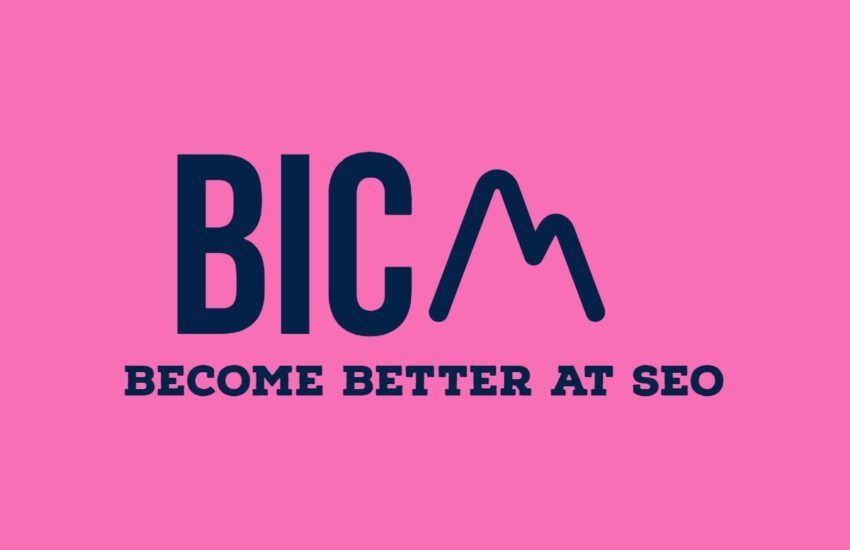How to Get Your Website Approved for Google AdSense
Google AdSense is a popular advertising program that allows website owners to monetize their online content.
However, getting your website approved for Google AdSense requires meeting certain criteria and following specific guidelines.
- Key Factors to Get Your Website Approved
- Conclusion
- Frequently Asked Questions
- 1. What are the basic requirements for Google AdSense approval?
- 2. How much traffic does my website need to get approved for AdSense?
- 3. Does my website need to be live for a certain period before applying for AdSense?
- 4. Can I use copyrighted images or content on my website and still get approved for AdSense?
- 5. Do I need a specific website design or layout for AdSense approval?
- 6. Can I apply for AdSense if my website is in a language other than English?
- 7. Are there any specific content categories that are prohibited for AdSense?
- 8. How long does it take for Google to review my AdSense application?
- 9. What should I do if my AdSense application gets rejected?
- 10. After getting approved, what are the best practices for maximizing AdSense revenue?
- 11. Does my website need to have a specific number of pages to qualify for AdSense?
- 12. Can I apply for AdSense if my website is still under construction?
- 13. What role does website traffic play in the AdSense approval process?
- 14. Are there any specific requirements for the design and layout of AdSense ads on my website?
- 15. Can I use other ad networks alongside AdSense on my website?
- 16. What should I do if my website has been previously rejected for AdSense?
- 17. Does my website need to have a specific domain age to be eligible for AdSense?
- 18. Can I apply for AdSense with a website hosted on a free platform like Blogger or WordPress.com?
- 19. What role does the quality of content play in the AdSense approval process?
- 20. Are there any specific technical requirements for my website to be eligible for AdSense?
Key Factors to Get Your Website Approved
In this article, we will discuss the key factors that can help you get your website approved for Google AdSense.
1. Enough Content
One of the most important requirements for getting your website approved for Google AdSense is having enough content.
Your website should have a sufficient number of pages with high-quality content. While there is no specific word count requirement, it is generally recommended to have at least 10 to 15 well-written and informative articles or blog posts.
2. Original and Valuable Content
Google values originality and uniqueness. To increase your chances of approval, make sure your content is original and adds value to the users.
Avoid copying content from other websites or using automated content generation tools. Create content that is engaging, informative, and relevant to your target audience.
3. Real Visitors, No Bots
Google AdSense requires websites to have real visitors. Using bots or any other artificial means to generate traffic is strictly against their policies.
Focus on organic methods to attract genuine visitors to your website, such as search engine optimization, social media promotion, and content marketing.
4. Internal Linking Instead of Multiple Posting
Rather than creating multiple posts on the same topic, it is recommended to use internal linking. Internal linking helps improve the user experience and navigation on your website.
It also helps search engines understand the structure and relevance of your content. By linking related articles or pages within your website, you can enhance the overall user experience and increase your chances of AdSense approval.
5. No Adult or Gruesome Content
Google AdSense has strict guidelines regarding the type of content that is eligible for monetization. Avoid publishing any adult, violent, or gruesome content on your website.
This includes explicit sexual content, graphic violence, hate speech, or any other content that violates Google’s policies. Make sure your website adheres to these guidelines to improve your chances of approval.
6. Legal Policies and Notices
Having proper legal policies on your website is crucial for AdSense approval. Make sure you have a privacy policy that explains how you collect, use, and protect user data.
Additionally, include a cookie policy that informs users about the use of cookies on your website. These policies demonstrate your commitment to user privacy and compliance with relevant regulations.
7. Proof of Website Ownership
Google requires you to prove that you own the website you are applying for AdSense.
This can be done by adding a unique meta tag or uploading an HTML file provided by Google to your website’s root directory.
Follow the instructions provided by Google to verify your website ownership and increase your chances of AdSense approval.
8. Valid Gmail Account
To apply for Google AdSense, you need a valid Gmail account. Make sure you have a Gmail account that you can use to sign up for AdSense. If you don’t have one, create a new Gmail account before starting the application process.
9. Contact Details
Provide accurate and up-to-date contact details when applying for AdSense. This includes your name, email address, and physical mailing address. Google may use this information to contact you for verification purposes or to send important notifications regarding your AdSense account.
Conclusion
Getting your website approved for Google AdSense requires meeting certain criteria and following the guidelines set by Google.
By ensuring you have enough original and valuable content, real visitors, proper internal linking, avoiding adult or gruesome content, implementing legal policies, providing proof of website ownership, using a valid Gmail account, and providing accurate contact details, you can increase your chances of AdSense approval.
Remember to always comply with Google’s policies and guidelines to maintain your AdSense account in the long run.
Frequently Asked Questions
1. What are the basic requirements for Google AdSense approval?
To qualify for Google AdSense, your website needs to meet several criteria. First and foremost, it must contain original content that adds value to users.
This means avoiding duplicate or copied material from other sources. Your site should also have a clear and easy-to-navigate design, ensuring that visitors can find what they’re looking for without frustration.
Additionally, you must comply with Google’s program policies, which cover a range of issues from prohibited content to copyright infringement. Having a privacy policy is also crucial, as it demonstrates your commitment to user privacy and data protection.
2. How much traffic does my website need to get approved for AdSense?
While there’s no set threshold for traffic, it’s essential to have a decent amount of organic traffic to your site.
Google looks at the quality rather than just the quantity of traffic, so focus on attracting engaged visitors who spend time on your site and interact with your content.
Aim for at least a few hundred visitors per day to demonstrate that your website has a level of authority and relevance in your niche.
3. Does my website need to be live for a certain period before applying for AdSense?
While there’s no specific timeline, it’s generally recommended to have your website live for at least a few weeks to a couple of months before applying for AdSense.
This allows you to build up your content library, establish a consistent publishing schedule, and attract some initial traffic.
It also gives Google time to crawl and index your site, ensuring that it meets their eligibility requirements.
4. Can I use copyrighted images or content on my website and still get approved for AdSense?
Using copyrighted material without proper authorization is a violation of Google’s policies and can lead to rejection or suspension of your AdSense account.
It’s crucial to only use content that you have the legal right to use, whether it’s original material created by you or properly licensed from the copyright owner.
If you need images or other media for your site, consider using stock photos or other resources that are explicitly licensed for commercial use.
5. Do I need a specific website design or layout for AdSense approval?
While there’s no one-size-fits-all design for AdSense approval, it’s essential to have a clean and professional-looking website.
Your site should be easy to navigate, with clear menus and intuitive navigation paths. Avoid cluttered layouts or excessive ads that can detract from the user experience.
Your content should be the focal point of your site, with ads placed strategically to complement rather than overwhelm it.
6. Can I apply for AdSense if my website is in a language other than English?
Yes, Google AdSense supports multiple languages, so you can apply with a website in any language.
However, it’s crucial to ensure that your content complies with Google’s policies and is valuable to users, regardless of the language it’s in.
Make sure to provide accurate translations for any non-English content, including metadata like page titles and descriptions, to help Google understand and index your site correctly.
7. Are there any specific content categories that are prohibited for AdSense?
Yes, Google has strict policies regarding prohibited content categories, including adult content, illegal activities, violence, hate speech, and misleading information.
It’s essential to review Google’s program policies carefully and ensure that your website complies with these guidelines.
If your site contains any content that violates these policies, you’ll need to remove it before applying for AdSense to avoid rejection or suspension of your account.
8. How long does it take for Google to review my AdSense application?
The review process for AdSense applications can vary depending on a variety of factors, including the volume of applications Google receives and the complexity of your website.
In some cases, you may receive a decision within a few days of submitting your application, while in others, it may take several weeks or longer. During the review process, Google will manually evaluate your website to ensure that it complies with their program policies and quality standards.
While waiting for a decision, it’s essential to continue focusing on creating high-quality content and improving your website to increase your chances of approval.
9. What should I do if my AdSense application gets rejected?
If your AdSense application is rejected, don’t panic. Google will provide you with specific feedback on why your application was not approved, which can help you understand what changes you need to make to reapply successfully.
Review the reasons for rejection carefully and address any issues or concerns raised by Google. This may involve improving the quality and originality of your content, making changes to your website design or layout, or removing any prohibited content or ads that violate Google’s policies.
Once you’ve made the necessary improvements, you can reapply for AdSense, keeping in mind the feedback provided by Google to increase your chances of approval.
10. After getting approved, what are the best practices for maximizing AdSense revenue?
Once your website is approved for AdSense, there are several strategies you can use to maximize your earnings. First and foremost, focus on creating high-quality, engaging content that attracts visitors and encourages them to spend time on your site.
The more valuable and relevant your content is to your audience, the more likely they are to click on your ads. Experiment with different ad formats, sizes, and placements to find what works best for your site and audience. Consider using responsive ads that automatically adjust to fit the size and layout of the user’s screen, maximizing visibility and engagement.
Monitor your performance regularly using AdSense analytics to identify trends and opportunities for optimization. This may involve adjusting your content strategy, optimizing your website for search engines, or targeting specific demographics or interests with your ads.
By continually testing and refining your approach, you can increase your AdSense revenue over time and maximize the return on your investment.
11. Does my website need to have a specific number of pages to qualify for AdSense?
While there’s no minimum requirement for the number of pages on your website, having a sufficient amount of high-quality content across multiple pages can strengthen your application.
Aim to have a robust content strategy with a variety of topics that are relevant to your audience.
12. Can I apply for AdSense if my website is still under construction?
It’s generally best to wait until your website is fully developed and has a substantial amount of content before applying for AdSense.
A website that’s still under construction may not provide a good user experience or meet Google’s eligibility criteria.
13. What role does website traffic play in the AdSense approval process?
While traffic isn’t the sole determinant of AdSense approval, having a steady flow of organic traffic to your website can demonstrate its relevance and value to users.
Focus on driving quality traffic through SEO, social media, and other marketing channels to increase your chances of approval.
14. Are there any specific requirements for the design and layout of AdSense ads on my website?
Google provides guidelines for ad placement and design to ensure a positive user experience.
AdSense ads should be clearly distinguishable from your content and placed where they’re likely to attract attention without being intrusive.
Avoid placing ads near interactive elements or navigation menus, as this can lead to accidental clicks.
15. Can I use other ad networks alongside AdSense on my website?
Yes, you can use other ad networks alongside AdSense as long as they comply with Google’s policies.
However, it’s essential to ensure that the ads from different networks don’t compete with each other or negatively impact the user experience on your site.
16. What should I do if my website has been previously rejected for AdSense?
If your website has been rejected for AdSense in the past, take the time to address the reasons for rejection before reapplying.
This may involve improving the quality of your content, making changes to your website design or layout, or removing any prohibited content or ads.
17. Does my website need to have a specific domain age to be eligible for AdSense?
There’s no minimum domain age requirement for AdSense, but having an established website with a history of consistent content creation and traffic can strengthen your application.
Focus on building a reputable online presence over time to increase your chances of approval.
18. Can I apply for AdSense with a website hosted on a free platform like Blogger or WordPress.com?
Yes, you can apply for AdSense with a website hosted on a free platform, but it’s essential to ensure that your website meets Google’s eligibility criteria and program policies.
This includes having original content, complying with copyright laws, and providing a positive user experience.
19. What role does the quality of content play in the AdSense approval process?
High-quality, original content is essential for AdSense approval as it demonstrates your website’s value to users and advertisers.
Focus on creating informative, engaging content that addresses the needs and interests of your target audience.
20. Are there any specific technical requirements for my website to be eligible for AdSense?
While there are no specific technical requirements, it’s essential to ensure that your website is accessible, fast-loading, and mobile-friendly.
This includes optimizing your site’s performance, using responsive design, and adhering to web standards and best practices. A well-maintained and technically sound website enhances the user experience and increases your chances of AdSense approval.
Related Posts


